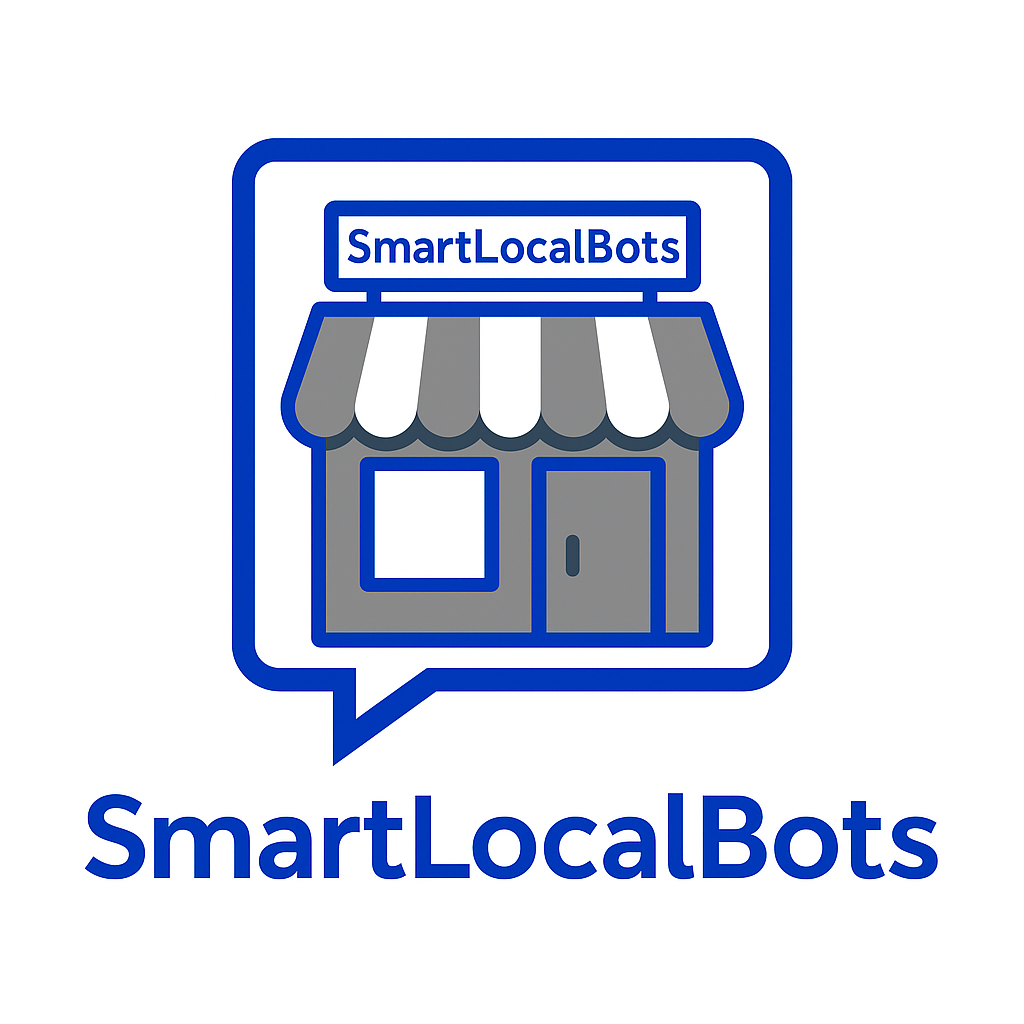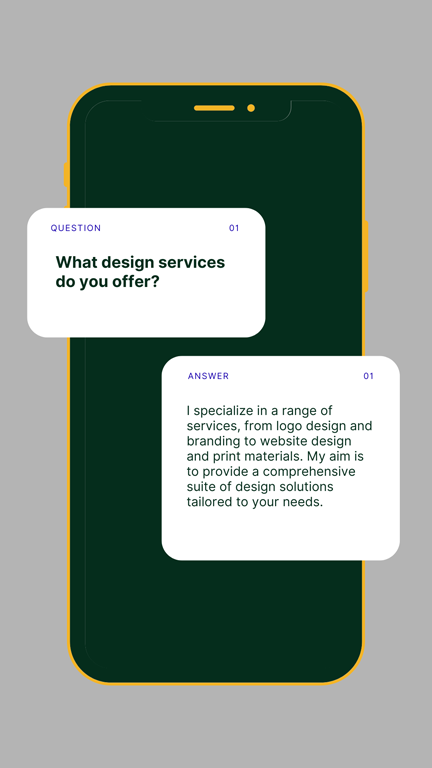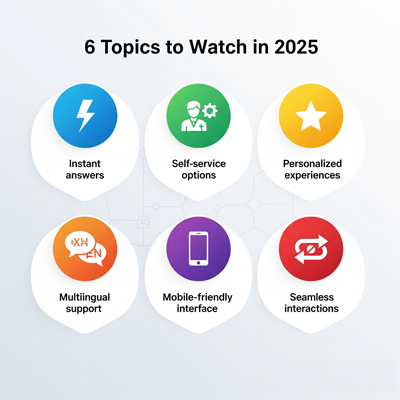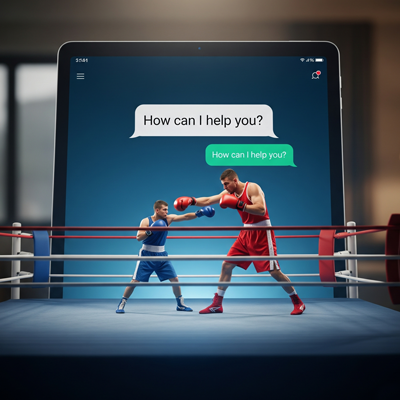Why Chatbots Are a Game-Changer for Small Businesses
Small businesses that deploy a chatbot gain an immediate competitive edge through automation that was once only available to larger corporations. While chatbots handle routine inquiries, your team can focus on activities that drive growth and customer relationships.
The rise of AI in customer service
Customer service has fundamentally changed as AI adoption accelerates across industries. Currently, 85% of surveyed executives anticipate generative AI will directly engage with customers within the next couple of years [1]. This shift comes as customer demands intensify – 82% of service professionals report increased customer expectations, while 78% of customers feel service interactions are rushed [2].
The impact on efficiency is remarkable. AI chatbots respond three times faster to customer inquiries [3] and have been shown to increase customer satisfaction by 24% [3]. Moreover, businesses using AI-powered virtual agents can reduce customer service costs by up to 30% [4].
Why 2025 is the tipping point for chatbot adoption
The global chatbot market will reach $46.64 billion by 2029 [5], with 2025 marking a crucial turning point as the technology becomes mainstream. Approximately 987 million people already use AI chatbots today [5], and North America leads adoption with 44% of support teams planning to invest in chatbots in 2025 [5].
This acceleration is driven by practical results: 90% of businesses have witnessed faster complaint resolution thanks to chatbots [5]. Furthermore, chatbots now handle complex queries that previously required human intervention, thanks to advancements in natural language processing [1].
How small businesses can compete with big brands
Small businesses can level the playing field against larger competitors through strategic chatbot implementation. Although only 9% of small business owners currently use AI for customer service [6], those who do gain significant advantages.
A primary benefit is round-the-clock availability—chatbots provide 24/7 customer support without additional staffing costs [1]. They also efficiently handle lead generation; one case study showed a 40% increase in lead conversion after implementing chatbots instead of web forms [7].
Beyond customer service, chatbots drive sales results—26% of all sales now originate from chatbot interactions [5]. For local businesses like salons booking appointments, plumbers handling emergency queries, or retail stores offering product recommendations, chatbots transform customer experiences while reducing operational costs.






